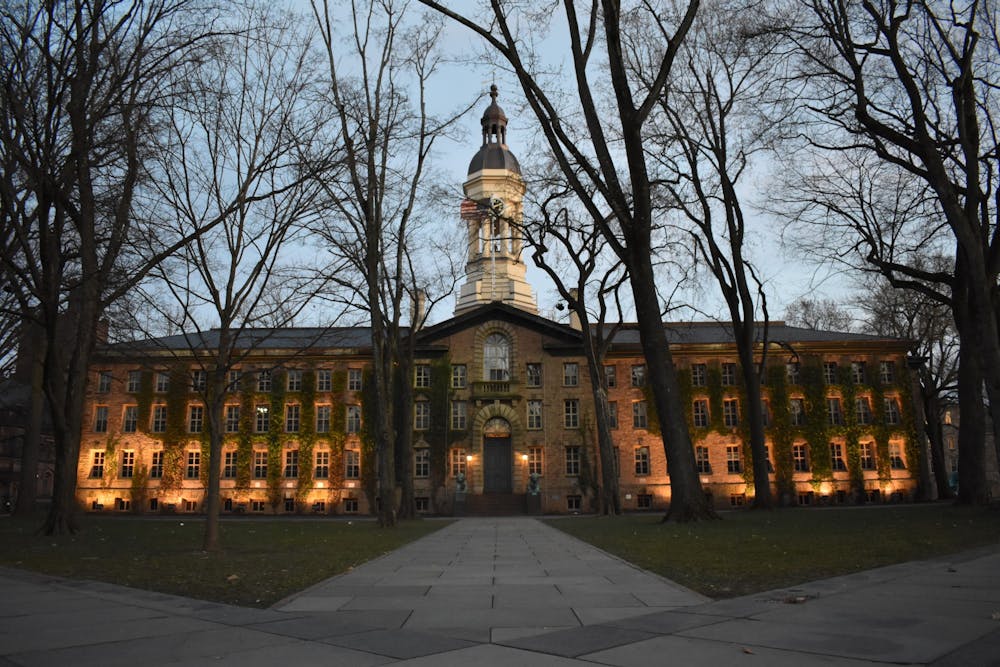Last week, the senior class voted in a 21-candidate primary election for young alumni representation on the University’s highest-ranking deliberative body. So what were seniors able to learn about Board of Trustees candidates prior to voting?
The answer to that question is simple: practically nothing.
Candidate bios contained eight pieces of information: the individual’s name, hometown, residential college, “upperclass dining affiliation” (i.e. a specific eating club, co-op, or other dining option), a favorite class, a single extracurricular activity, their concentration and list of certificates, and a brief blurb about the candidate’s “most meaningful Princeton experience.” In an op-ed last week, Daniel Te ’21 highlighted the incomplete and reductive pictures that these brief profiles paint of candidates.
We should not be deciding who serves on the Board of Trustees based on hometowns, dining affiliations, residential colleges, and the other surface-level, inessential biographical information currently available. On deeply consequential issues central to the Board’s operations — like ongoing discussions over how the University can combat systemic racism — we should know where prospective young alumni trustees (YATs) stand.
While we applaud the University for its continued use of the YAT program to help combat the disconnect between administrators and the student body — and for ensuring that YATs operate with the same rights, powers, and duties as all other trustees — the process for selecting who should serve in this consequential role is deeply flawed. There is, however, an opportunity to rectify this as soon as May, when the general election will occur.
Under the current system, all candidates must pledge not to openly campaign. What this means practically is that if asked about important policy issues, candidates simply cannot respond or are forced to speak cautiously around the issues themselves. This suppression of dialogue, in addition to being surprising from a University so outwardly emphatic about speaking freely, drastically undermines the ability of students and alumni to make an informed vote.
For years, the stated justification for the policy has been that staking out specific positions on issues could undermine a future trustee’s effectiveness on the Board. We don’t entirely disagree with this logic and understand that YAT candidates should not be committing empty policy promises beyond their control. However, we deeply struggle to see how voting based on hometowns, eating club affiliations, and whether a candidate happens to be a “Whitman Whale” is an effective solution.
The present ban on openly discussing consequential issues is antithetical to the role of a trustee. The YAT website notes that “a trustee must be willing to consider all sides of an issue impartially and to speak candidly on an issue, even if it involves a particularly controversial topic.” Why not let that candid discussion start now, and allow candidates to demonstrate their willingness to listen to their peers?

We are far from the first to point out this glaring procedural issue. In 2006, The Daily Princetonian Editorial Board noted that protesting the ban on campaigning “has become almost as much of an annual tradition as the vote itself” — before basing a satirical endorsement on candidates’ initials, publicly-displayed photos, and the cost of an Amtrak ticket to Princeton from each candidate’s hometown to the University. The Editorial Boards of 2008, 2009, 2010, and 2014 issued similar calls for reform. As previous Boards have pointed out, students running for YAT have, through their four years on campus, likely developed strong and informed views on how to improve the Princeton experience. So we continue to ask: why not allow those views to be expressed?
We recognize, as did the Board of 2014, that the rigors of senior independent work may make unlimited campaigning too hefty a burden on candidates. However, like our predecessors, we see no reason why a reasonable balance could not be struck. Even if campaigning were highly regulated, as is the case with Undergraduate Student Government elections — with limited budgeting, specific restrictions on the number of promotions that can be sent out, and centralized open discussion forums — it would be a substantial improvement over the current system.
With the primary election now behind us, Jonathan Ort ’21, Emma Parish ’21, and Morgan Smith ’21 will be the three choices on the May ballot sent to the classes of 2019, 2020, 2021, and 2022. The University should allow these candidates to engage with voters, lay out their priorities, and explain why their four years at Princeton make them well-suited for the role — and it should lift the campaigning ban for all future YAT elections. Otherwise, as Te noted, this process is little more than a popularity contest.
145th Editorial Board

Chair
Mollika Jai Singh ’24
Members
Shannon Chaffers ’22
Won-Jae Chang ’24
Kristal Grant ’24
Harsimran Makkad ’22
Anna McGee ’22
Collin Riggins ’24
Zachary Shevin ’22








